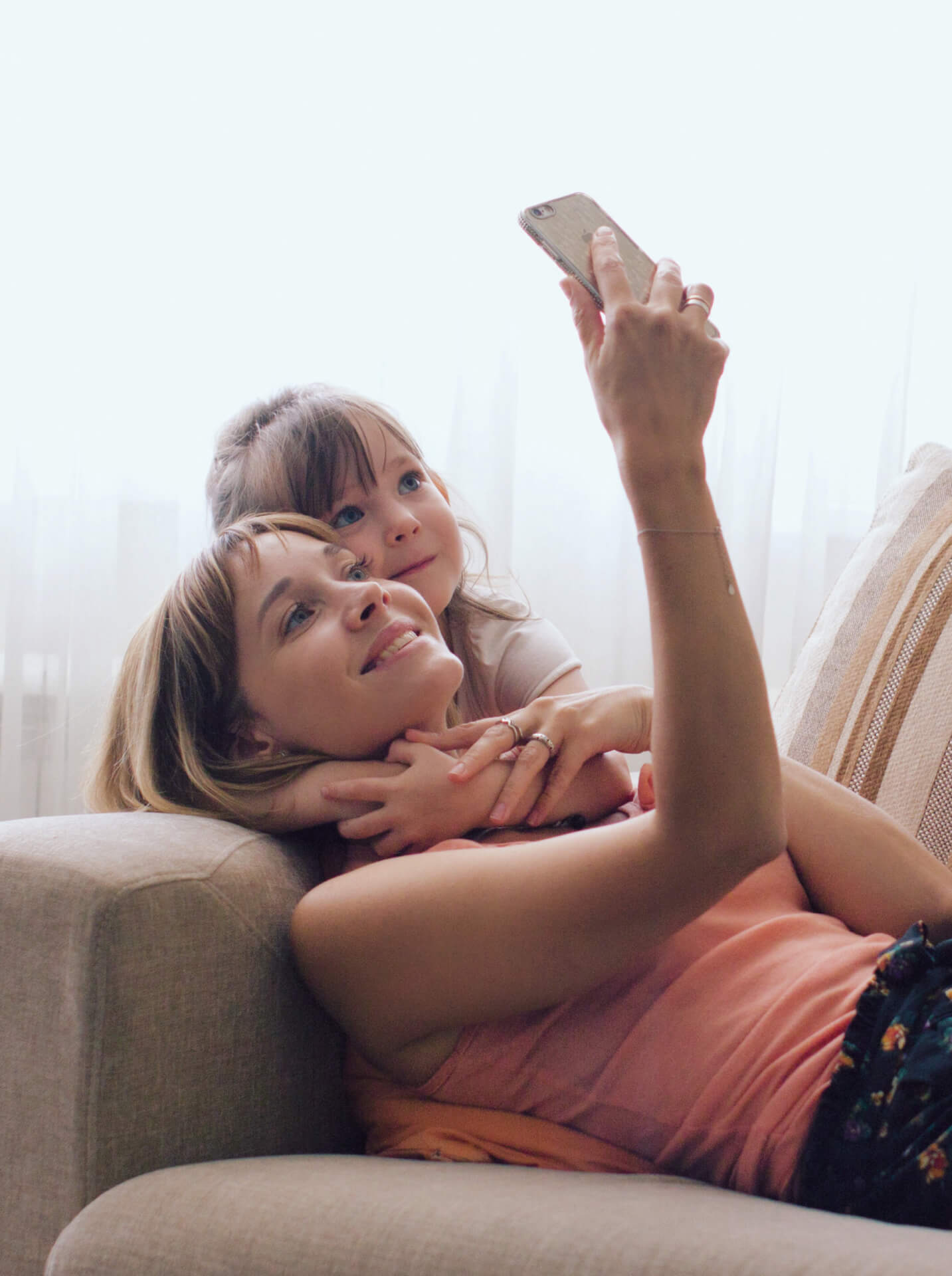
How to connect quality time with technology to bridge physical and generational gaps.
PASSENGERS WITHOUT PASSPORTS
I know that many of us as families try to steer away from overreliance on technology, and strive for our due diligence in attempting to tame the screen beasts. As conscious parents, we’ve been told many times over about the risks of being online – for adults and kids alike. There’s plenty of data for us to stay wary.
A recent study by the Kaiser Family Foundation in the US found that young people aged eight to 18 spend more than 11 hours a day with smartphones, computers, TVs and other screen-based devices. Young Australians don’t lag far behind. A national poll found that 94 percent of teens and two-thirds of primary-school-aged kids own a mobile phone. Toni Hassan, a journalist and author of guidebook Families in the Digital Age, offers this metaphor: “When we travel overseas, we have to carry a passport. It signals that we have been prepared, somewhat, for travel. Children and young people are given smartphones without an equivalent passport.”
CONNECTED WORLD
But even experts agree on one thing: we can’t escape technological advancement, and the global pandemic has only sped up what was already galloping. No matter how hard we might try to stay offline, our kids were born as digital natives, and they will come of age in times of unprecedented global changes and the rapid growth of smart homes, online learning and teleservices.
Ashley Fell from Australian research agency McCrindle admits that for our kids, exposure to technology takes place during their formative years and will have a great impact on their lives, both good and bad. “From shorter attention spans to the gamification of education, from increased digital literacy to the impaired social formation, we’re all experiencing these technological shifts,” Fell notices.
In his book, The New Childhood: Raising Kids to Thrive in a Connected World, philosopher and researcher Jordan Shapiro offers a hopeful counterpoint to all the fears. He claims that “there’s a lot of talk about the terrible things that happen online … but there’s not a lot of data showing it. I believe that with technology, our children will be able to create new, better models of global citizenship, connection and community.”
MINDFUL RELATIONSHIPS
So is there a way to enjoy the riches of connectivity while curbing the side effect of an addictive relationship with the screens? Psychologists argue that we can stay mindful of technology by using it smartly. One way is to employ digital tools – computers, tablets, or smartphones – to make valuable connections and not just to play or numb with TV. Heather Turgeon, an American psychotherapist and co-author of the book Now Say This: The Right Words to Solve Every Parenting Dilemma, reassuringly says that video chats, texting, and emailing with family are considered connecting rather than screen time.
My kids have only seen their grandparents a few times in their lives. We live in Australia – they live in Europe. With international travel off the cards, our once-a-year trip to Poland was halted. But where challenge appears, usually, innovation follows. When families can’t be in the same place physically, online tools are a beautiful way to reconnect two generations separated by age, time, and space.
We have achieved this by establishing a routine of evening video chats with grandparents. The central theme is ‘bedtime story’. Every family member connecting with us in the evening has a storybook ready and some reading props at hand. Our kids, washed and dressed for bed, wait eagerly by the tablet. On average, we do this every other day, so as not to overwhelm both parties and to keep alive the novelty and specialness of these online events.
These digitally enabled moments are their own sacred time spent with those who are generations above them. They bond, learn new words, listen to stories and share memorable events from their day – exchanging experiences that are wildly different. And isn’t that the richness of a digitally connected world? That new knowledge, perspectives vastly different from our own, and sometimes a touch of support, are all at the tips of our fingers.
WHAT ARE THE MAIN BENEFITS OF CONNECTING THROUGH TECHNOLOGY?
- A listening ear. Grandparents are not parents, and that’s their main advantage – children trust them dearly and will often share more intimate details from their lives.
- Passing on cultural heritage and family history. Even if we’re lucky to have grandparents and other relatives nearby, we don’t usually live under the same roof. Connecting online allows grandchildren to learn more about their background.
- Bonding with someone older. The whole world is ageing, and it’s only natural that our kids should have a chance to hang out with our older generation, even if virtually. It can teach them empathy and respecting the wisdom of elders.
- Practise reading or vocabulary. These sight words driving you crazy? Trying to teach your kids times tables? Tap into Nan’s wisdom. Their online hang-out can serve both an emotional and educational purpose.
- Some sweet free time for the parents. What’s better than 20 minutes to yourself (and your partner) before your kids’ bedtime? These short minutes taste even better if you know they spend quality time bonding with their family while you can indulge in any small self-care practice.























